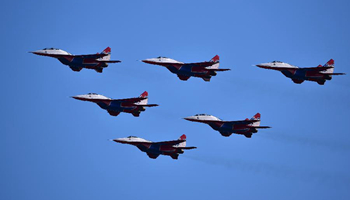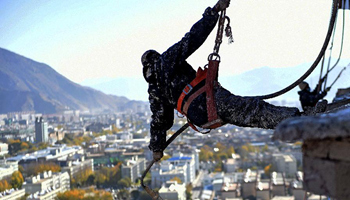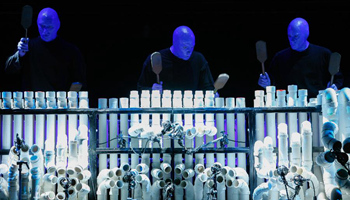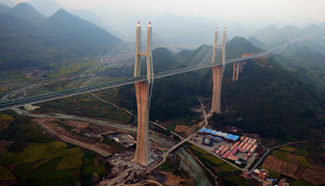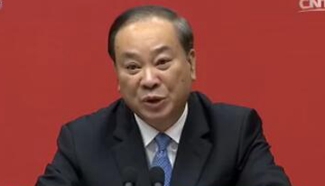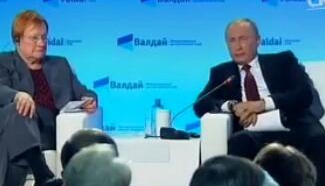DAMASCUS, Oct. 28 (Xinhua) -- One of the main reasons behind the rebels' violent offensive in the northern province of Aleppo on Friday was the suspension of the Russian airstrikes there, analysts here say.
A major offensive was unleashed at early hours Friday by at least 12 rebel groups, including ultra-radical ones, against government forces' positions in western Aleppo and its countryside, coupled with intense shelling and booby-trapped vehicles.
The aim of the rebel attack was to break the government forces' siege on the rebel-held eastern part of Aleppo city.
Military sources said the attack was foiled, in terms of achieving a breakthrough, but intense battles are still raging.
This comes ten days after Russian warplanes halted their airstrikes on Aleppo.
Sergei Shoigu, the Russian defense minister, said on Oct. 18 that the halted airstrikes came as part of preparation for a temporary truce, which later failed to achieve its intended goals of helping the evacuation of civilians and rebels from eastern Aleppo.
The evacuation of terrorist groups, such as the Jabhat Fateh al-Sham, was also proposed by the UN special envoy to Syria, Staffan de Mistura.
However, Russia didn't resume the airstrikes after the faltering truce, as Russian officials said that depends on whether the rebels can be persuaded to cut ties with terrorist militants, as agreed upon with Washington in order to bring peace to Aleppo.
Moscow has repeatedly urged Washington to push Syria's Western-backed rebels to sever ties with al-Qaida militants and to separate the terrorist groups from "moderate rebels."
Earlier in the day, Russia's President Vladimir Putin turned down a request from his defense ministry on resuming the airstrikes in Aleppo following the rebels' attack, saying he believed the resumption of airstrikes is "unnecessary for now," according to Kremlin spokesman Dmitry Peskov said.
Putin rejected resuming the strikes in order to give the United States time to separate terrorist groups from the moderate opposition and to allow militants and civilians to leave Aleppo, Peskov noted.
He added, however, that Moscow reserves the right to use all of its means and force to support Syrian army.
Analysts agreed that Moscow didn't resume the airstrikes to give Washington the time to work on separating the rebels, however, big doubts on the possibility of achieving such a separation.
Another reason, analysts believe, is the crescendo of international condemnation of Russia for carrying out relentless airstrikes on rebel-held areas in eastern Aleppo.
Sharif Shehadeh, a former Syrian parliamentarian, said that Russia shouldn't fall in the trap of the United States.
"There are no moderate rebels in Aleppo, all of them are related to al-Qaida, and have a terrorist agenda...I think if Russia waits for the United States to separate the rebels from the terrorists, it will have to wait for a hundred years before Washington could do that."
He charged that "the United States is in a state of constant lying."
"Why does the United States deem the militants in Iraq's Mosul as terrorists, while regarding the terrorists in Syria as revolutionaries?" Shehadeh wondered.
"We need to say the truth that everything that happens in Syria happens in Iraq...We need to settle the situation in Aleppo once and for all," he said.
He said that time is not on Aleppo's side, adding that "if the terrorists in Aleppo were not defeated, there will be more bloodshed."
"Time is not on our side, if the terrorists in Aleppo were given more time, they will collect more weapons, receive more finances and pull themselves together, and that will cause more martyrs among the Syrian government forces," Shehadeh warned.
He urged Russia to move quickly in Aleppo against the "terrorist groups."
Meanwhile, Maher Ihsan, a Syrian journalist and political analyst, said that the high pressure on Russia by the Western powers has also contributed to the suspension of the airstrikes.
"They orchestrated a major campaign against Russia, accusing it of committing war crimes in Syria, as well as threatening Russia with sanctions, and that's in part a reason behind the suspension of airstrikes," he said.
As a result of the Western accusations and stalling in Syria, Russian President Vladimir Putin warned that his country might "lose patience" in Syria, adding that Russia had been showing "restraint" in the Syrian conflict to date.
"We don't respond to our partners in such a rude way. But everything has its limits. We may respond," he said on Thursday.
Ibrahim Bdur, a lawyer in Aleppo, said that "the safe areas in Aleppo are no longer safe as a result of the intense rebel shelling by rockets and long-range missiles."
"Time is not on Aleppo side," he said.
Syria's national TV said at least 15 people were killed in the renewed shelling on government-controlled areas in western Aleppo.
The Syrian Observatory for Human Rights, a UK-based watchdog group, said the rebels managed to capture parts of the Assad Suburb in Aleppo after battles with the army forces.
Local media reports said intense battles are raging inside that area, denying any rebel progress there.
Observers believe that Aleppo is going to be the decisive battle ground among the fighting groups, and the winner will be the one dictating its conditions to resolve the crisis, as the province contain all the groups that are supported by regional and international powers, with the civilians paying the price for this proxy war.

